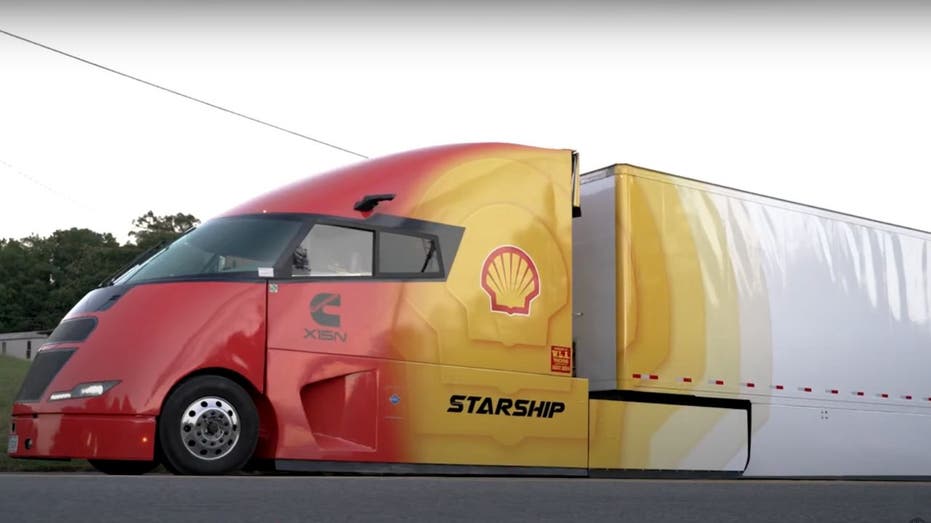The Future of Trucking: Shell’s Groundbreaking Starship Initiative

The Shell Starship Initiative has embarked on a transformative journey since its launch in 2018, aiming to revolutionize energy efficiency within the commercial trucking industry. With the debut of the Starship 3.0, we are witnessing a significant pivot towards sustainability, powered by cutting-edge technology and innovative design. This latest iteration features the advanced Cummins X15N natural gas engine, which not only boosts performance but also dramatically lowers emissions.
A Vision for Energy Efficiency
From the outset, the Shell Starship Initiative set out to establish new standards in energy efficiency for commercial trucking. The initial two versions of the Starship, which relied on diesel engines, made notable progress in fuel efficiency compared to industry norms. However, the introduction of the Cummins X15N engine in the Starship 3.0 marks a significant shift away from diesel, tackling both environmental challenges and enhancing operational performance.
The Cummins X15N Engine: A Game-Changer
Launched in 2024, the X15N engine is tailored specifically for heavy-duty applications and addresses previous challenges associated with using natural gas as a fuel source. It delivers power levels comparable to diesel engines but with improved fuel efficiency and significantly reduced emissions. This is particularly crucial as the trucking sector faces mounting pressure to comply with stricter environmental regulations.
Innovative Features of the Starship 3.0
The Starship 3.0 is not just an evolution; it’s a revolution in trucking technology. Here are some of the standout features that set it apart:
Natural Gas Power Train
The transition to the Cummins X15N engine enables the Starship 3.0 to utilize various forms of natural gas, including renewable natural gas. This flexibility not only enhances its environmental benefits but also makes it an appealing choice for fleets eager to move away from traditional fossil fuels.
Weight Reduction
Weighing approximately 500 pounds less than its diesel counterparts, the new engine allows for a greater freight-carrying capacity. This weight savings, combined with lightweight construction materials, results in an impressive ton-miles per gallon efficiency of 183, significantly outpacing the industry average of 72.
Aerodynamic Design
The Starship 3.0 boasts a sleek, aerodynamic profile with curved edges that minimize wind resistance. Additional features like low rolling resistance tires and integrated aerodynamic panels further enhance its efficiency, making it a formidable competitor in the trucking landscape.
Advanced Lubrication Technology
Shell has developed specialized lubricants designed to withstand the higher temperatures produced by natural gas engines. The Starship 3.0 utilizes Shell Rotella NG Plus SAE 5W-30 synthetic oil, specifically formulated for optimal performance, along with advanced transmission lubricants to further enhance overall efficiency.
Real-World Testing and Feedback
Feedback from seasoned truck drivers, including brothers Brian and Eric Rector, has been instrumental in refining the Starship’s design and functionality. Their extensive experience with all three iterations of the truck has provided invaluable insights that inform ongoing improvements and adaptations.
Impressive Performance Metrics
The Starship 3.0 has set new performance benchmarks, achieving a freight ton efficiency that is 2.542 times better on a ton-miles per gallon basis than its predecessors. It also boasts an average fuel consumption of 9 mpg (diesel gallon equivalent) while hauling the industry maximum load of 80,000 pounds. The use of renewable natural gas further bolsters its environmental credentials, positioning it as a viable option for fleets focused on sustainability.
A Bright Future for Sustainable Trucking
With its innovative natural gas engine and outstanding performance statistics, the Starship 3.0 exemplifies how technology can reshape the trucking industry while addressing urgent environmental issues. This initiative not only sets ambitious new benchmarks for energy efficiency but also provides a practical roadmap for fleets seeking to reduce their carbon footprint.
Engaging with the Future
What are your thoughts on the transition to natural gas and other eco-friendly technologies in the trucking industry? Do you believe these innovations are the key to tackling environmental challenges, or do you see other solutions worth exploring? We welcome your insights and encourage you to share your views.
Stay Updated
For more tech tips and industry updates, subscribe to our newsletter. Join our community and stay informed about the latest developments in technology and sustainability.


